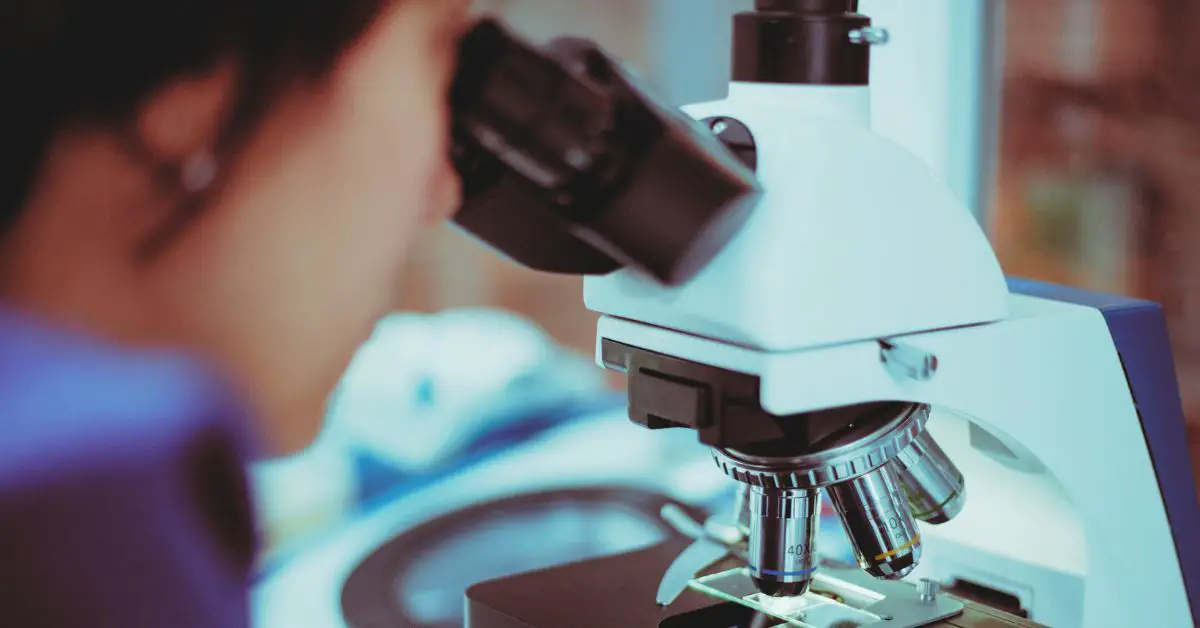Want to know more about the Best Microbiology Schools In the US and make an informed decision? Here is a good place to start.
Microbiology is the science of the teeny-tiny stuff that’s too small to see with the naked eye. It’s a fascinating field that helps us understand how bacteria, viruses, and fungi impact our health, environment, and beyond.
Choosing the right school is key if you’re itching to become a microbiology hotshot.
Today, we’ll explore the best microbiology schools that offer top-notch programs, professors, and facilities to help you achieve your career goals. Get ready to dive into the microscopic world of microbiology!
Please note that schools are selected based on our criteria (at the end of the article), ranked by the latest acceptance rate.
Table of Contents
#25. University of Minnesota Twin Cities
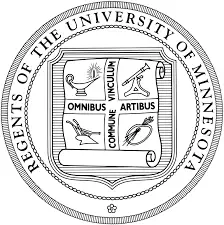
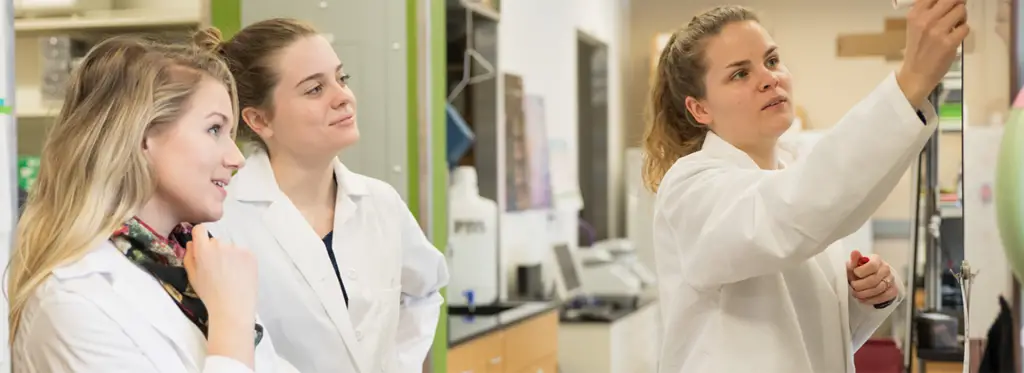
- Acceptance rate: 70%
- Average entry score: 1330-1500 SAT or 27-32 ACT
- Student-to-faculty ratio: 17 to 1
- Estimated cost of attendance (tuition and fees): $23,110-$52,088
- Average earning potential for graduates: $103,300 (College Simply)
The University of Minnesota Twin Cities’ Microbiology program is the perfect way for students to gain a deep understanding of microbiology. This college offers a range of classes and programs, providing students with hands-on experience and invaluable knowledge that can be applied to many industries.
Their microbiology undergraduate or graduate program also provides networking opportunities, financial aid, and career services.
Future microbiologists at the University of Minnesota Twin Cities can expect to receive a strong foundation in microbiology, including lab work and research.
#24. University of Pittsburgh
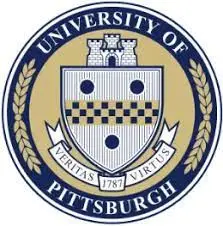

- Acceptance rate: 66.7%
- Average entry score: 1440 SAT or 33 ACT
- Student-to-faculty ratio: 14 to 1
- Estimated cost of attendance (tuition and fees): $19,760-$36,000
- Average earning potential for graduates: $25,826 (College Factual)
A bustling laboratory filled with curious minds, microscopes zooming in on tiny organisms, and a sense of excitement in the air. This is the scene at the University of Pittsburgh’s microbiology program, and it’s no wonder why students are flocking to this program like bacteria to a petri dish.
What sets this program apart from others is its emphasis on hands-on experience. Students have the opportunity to work on cutting-edge research projects alongside renowned professors, giving them a taste of what it’s like to be a real-life scientist.
Another draw for students is the program’s focus on interdisciplinary studies. Microbiology is a field that intersects with many other areas of science, and the University of Pittsburgh recognizes this.
#23. University of Pennsylvania
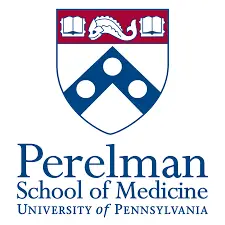
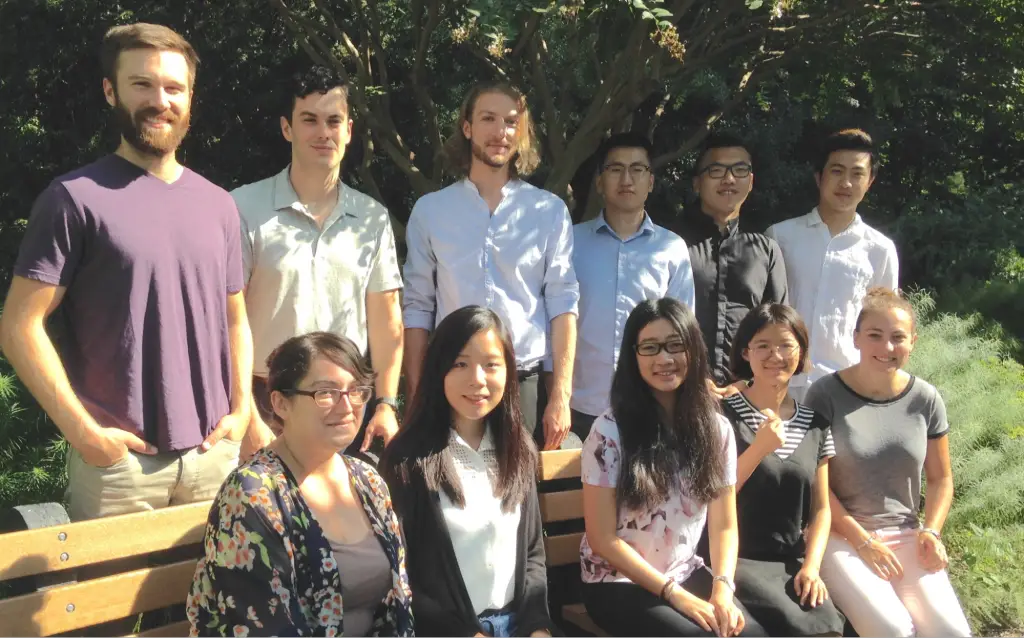
- Acceptance rate: 64%
- Average entry score: 1460-1570 SAT or 33-35 ACT
- Student-to-faculty ratio: 7 to 1
- Estimated cost of attendance (tuition and fees): $65,790
- Average earning potential for graduates: $197,100 (College Simply)
People who are interested in studying microorganisms, such as bacteria and viruses, will find many opportunities at the University of Pennsylvania.
This school has different programs that focus on different areas of microbiology. Some programs focus on research skills, while others are geared toward the practical application of knowledge.
But all of them will give you a thorough understanding of the science behind these tiny organisms.
In addition to teaching its students about microbiology, UPenn also gives them training in how microbes cause disease and the best ways to fight those diseases.
#22. University of Wisconsin Madison
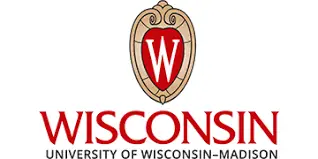

- Acceptance rate: 60%
- Average entry score: 1300-1480 SAT or 28-32 ACT
- Student-to-faculty ratio: 18 to 1
- Estimated cost of attendance (tuition and fees): $27,484-$55,372
- Average earning potential for graduates: $36,807 (College Factual)
Have you heard about the microbiology program at the University of Wisconsin-Madison? It’s a program that offers students a well-rounded education in molecular and cellular biology, genetics, ecology, evolution, and the physiology of microbes.
This course prioritizes practical experience, so students get hands-on lab experience.
The facilities and resources are top-notch, too. This institution has a global research reputation. You can expect to learn from some of the best academics in the field.
Their curriculum is continually updated to keep pace with changing technology and trends in microbiology.
Similar articles like this:
- 25 Best Material Science Schools In The US
- 25 Best Schools For Math In The US
- 25 Best Medical Schools In The US
#21. Ohio State University
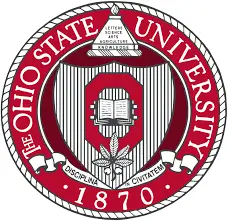
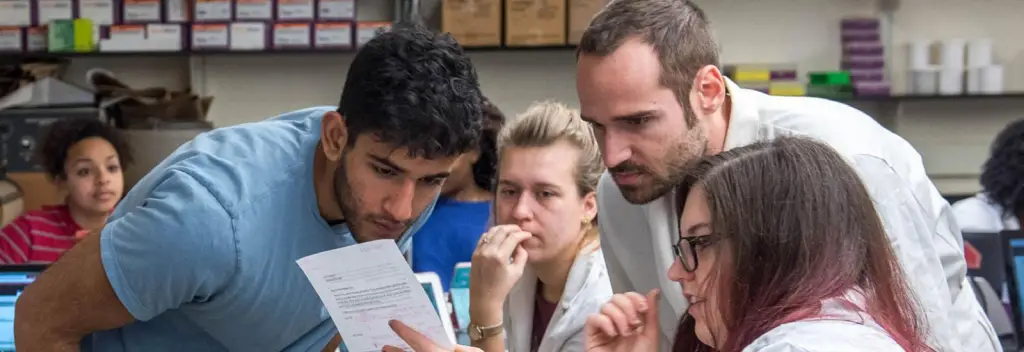
- Acceptance rate: 57.2%
- Average entry score: 1250-1440 SAT or 26-32 ACT
- Student-to-faculty ratio: 18 to 1
- Estimated cost of attendance (tuition and fees): $29,368-$52,451
- Average earning potential for graduates: $35,024 (College Factual)
The Ohio State University’s microbiology program boasts cutting-edge research, practical experience, and a supportive community that will help you take your skills to the next level.
Their faculty members are conducting groundbreaking research. You’ll have access to the latest equipment and techniques. Plus, you’ll gain hands-on experience that will give you a deep understanding of microbiology.
The program also emphasizes collaboration and practical experience. Coupled with the school’s fairly large student population, you’ll build connections and relationships that will last a lifetime.
And with a foundation of knowledge that can be applied to various fields, you’ll be ready to make a difference no matter where your passions lie.
#20. University of Washington Seattle
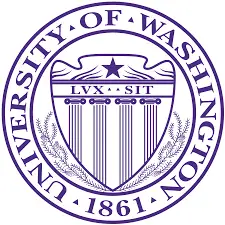

- Acceptance rate: 56%
- Average entry score: 1220-1470 SAT or 29-34 ACT
- Student-to-faculty ratio: 9 to 1
- Estimated cost of attendance (tuition and fees): $30,640-$58,470
- Average earning potential for graduates: $111,500 (College Simply)
One of the reasons that the University of Washington’s Seattle microbiology program boasts a regional research reputation in biological sciences, especially microbiology. The university has been a leader in microscopic organism research since its inception.
This program is housed within the Department of Microbiology, with a faculty of over 30 world-class microbiologists, immunologists, and virologists.
The research and internships offered through the program give students important experience that prepares them for future academic or professional pursuits.
#19. University of California Davis
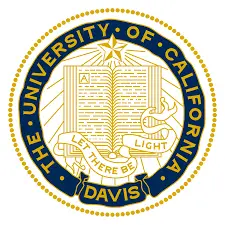
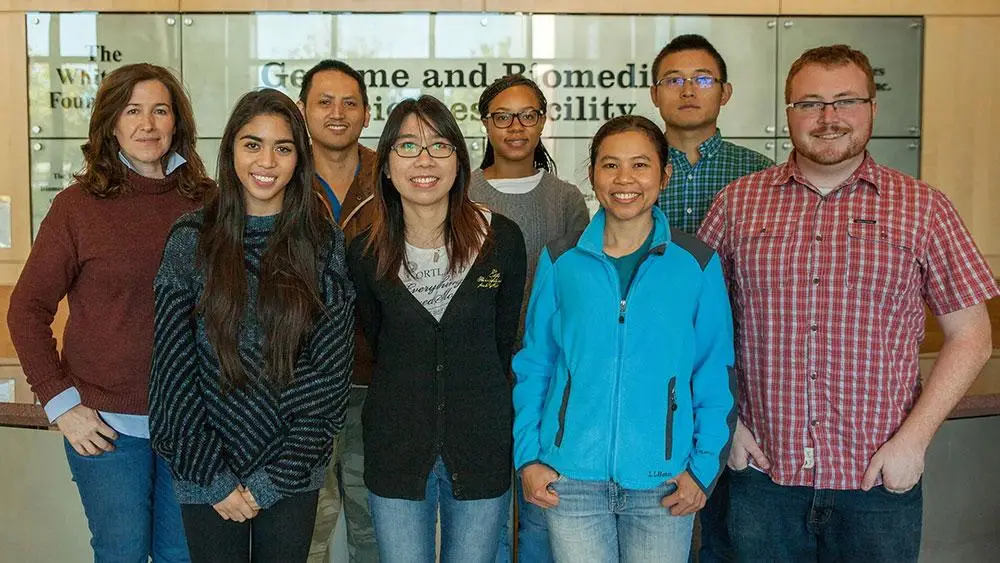
- Acceptance rate: 48.8%
- Average entry score: 1160-1400 SAT
- Student-to-faculty ratio: 20 to 1
- Estimated cost of attendance (tuition and fees): $37,122-$66,876
- Average earning potential for graduates: $35,100 (College Simply)
UC Davis’s microbiology program is a hub of scientific innovation and discovery. With world-renowned faculty members and the most recent facilities, students interested in microbiology are equipped with the knowledge and skills necessary to tackle the biggest challenges in the field.
From studying the microbiome to developing new treatments for infectious diseases, the program offers a diverse range of research opportunities.
Students also have access to hands-on learning experiences, including internships and research projects.
#18. University of California San Diego
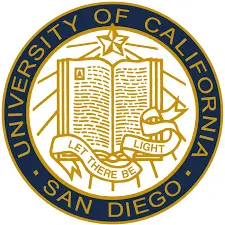
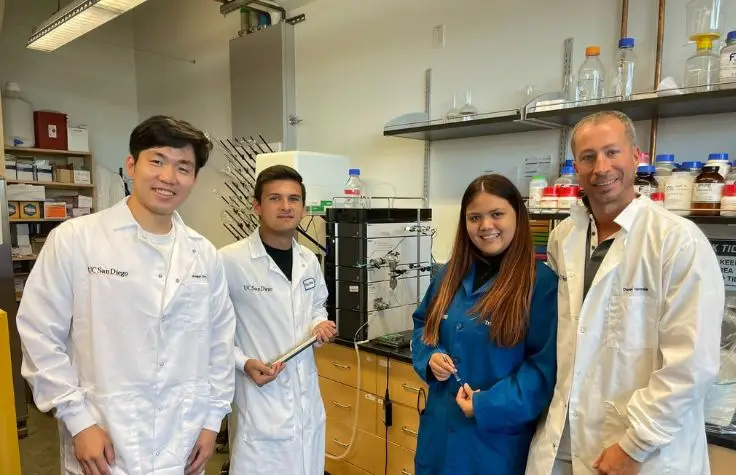
- Acceptance rate: 37%
- Average entry score: 1270-1480 SAT or 28-34 ACT
- Student-to-faculty ratio: 12 to 1
- Estimated cost of attendance (tuition and fees): $36,061-$65,835
- Average earning potential for graduates: $57,100 (College Simply)
The microbiology program at the University of California San Diego (UCSD) offers students a highly unique experience. This program gives students a broad, multi-disciplinary understanding of microbiology.
Students have access to state-of-the-art facilities and are taught by world-renowned faculty members who are conducting cutting-edge research in the field. In addition to classroom learning, students have the opportunity to conduct research with faculty members and attend seminars or conferences.
As a whole, the microbiology program at UC San Diego offers students an expansive learning environment that prepares them for careers in various branches of biology.
Similar articles like this:
- 25 Best Multidisciplinary Schools In The US
- 25 Best Gerontology Schools In The US
- 25 Best Nursing Schools In The US
#17. University of Texas at Austin

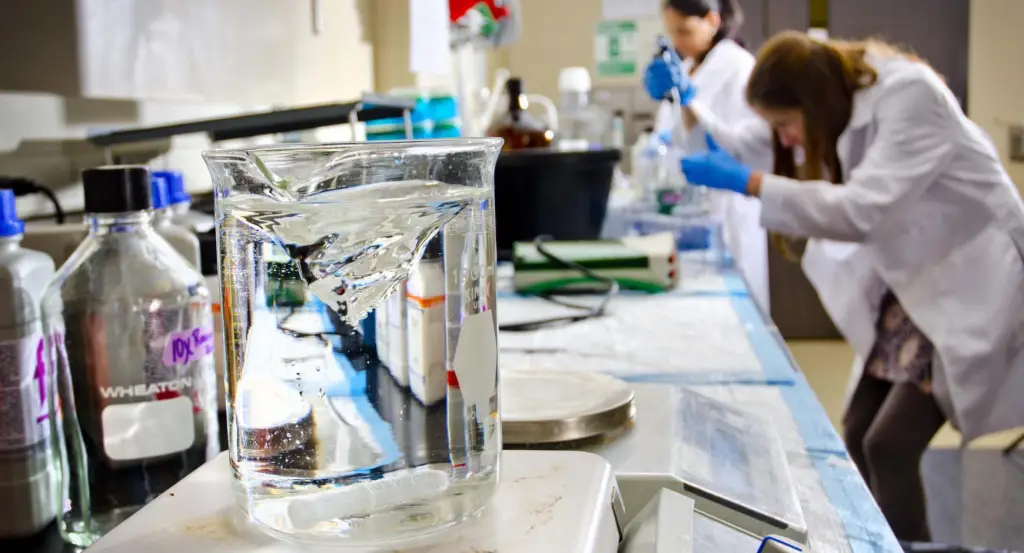
- Acceptance rate: 28.7%
- Average entry score: 1230-1480 SAT or 29-34 ACT
- Student-to-faculty ratio: 18 to 1
- Estimated cost of attendance (tuition and fees): $28,928-$57,512
- Average earning potential for graduates: $32,100 (College Simply)
The University of Texas at Austin’s microbiology program is perfect for students who want to excel in this exciting field.
This program’s faculty, who are highly qualified and experienced, impart hands-on learning experiences to students. They create an inclusive environment that supports their success in career pursuits.
Not only will they learn from some of the best in the industry, but they’ll also have the chance to apply their theoretical knowledge in a practical setting, developing critical thinking, problem-solving, and teamwork skills.
With its well-rounded curriculum and dynamic atmosphere, the microbiology program at UT Austin is a top choice for aspiring microbiologists.
#16. University of Michigan Ann Arbor
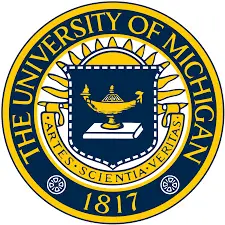
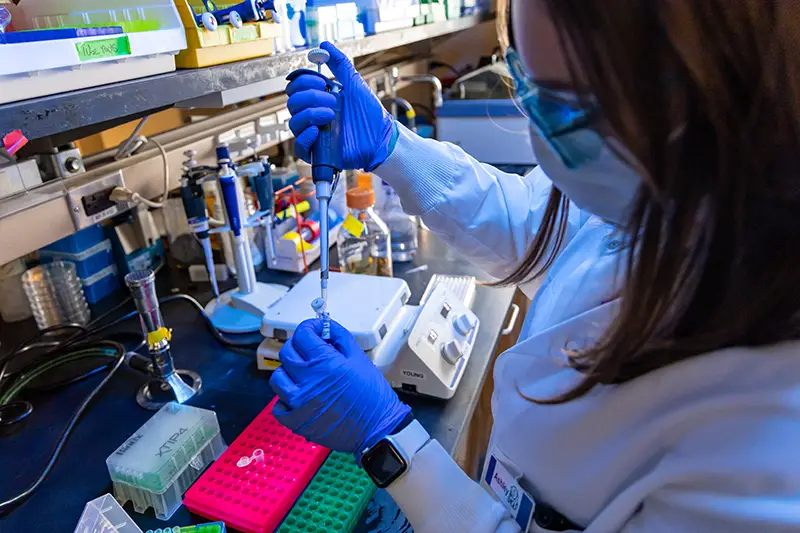
- Acceptance rate: 26%
- Average entry score: 1360-1530 SAT or 31-35 ACT
- Student-to-faculty ratio: 15 to 1
- Estimated cost of attendance (tuition and fees): $32,272-$69,326
- Average earning potential for graduates: $60,800 (Grad Reports)
If you’re interested in unlocking the secrets of the microscopic world, consider studying microbiology at the University of Michigan.
Learn from top-notch professors who are experts in their field and passionate about teaching the next generation of scientists.
With access to cutting-edge facilities and endless research opportunities, you’ll gain valuable hands-on experience and make valuable connections in the industry.
Whether you’re interested in studying the human gut or exploring the ecological impacts of microorganisms, the Microbiology program at U of M has something for you.
#15. University of North Carolina Chapel Hill
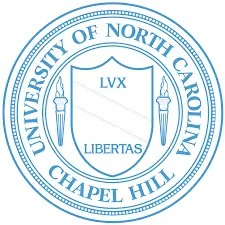
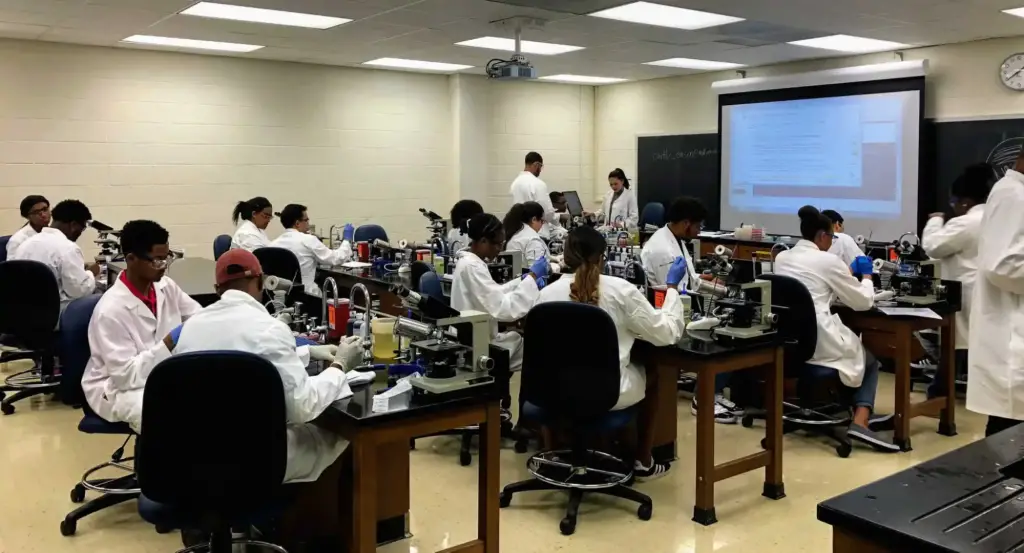
- Acceptance rate: 25%
- Average entry score: 1310-1500 SAT or 29-33 ACT
- Student-to-faculty ratio: 13 to 1
- Estimated cost of attendance (tuition and fees): $24,546-$51,725
- Average earning potential for graduates: $105,200 (College Simply)
UNC-Chapel Hill’s microbiology program is like the X-Men’s Professor Xavier, but for germs. With a curriculum that covers everything from bacteria to viruses to fungi, students will learn how to battle these tiny foes with the power of science.
They’ll also get hands-on experience in labs, where they can grow and study these little organisms and even create their own strains. Graduates will emerge as microbiology superheroes, ready to save the world from deadly outbreaks and pesky infections.
#14. New York University

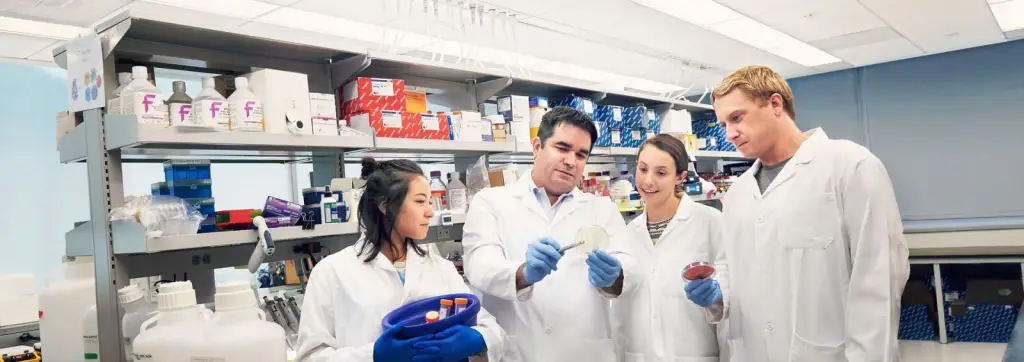
- Acceptance rate: 21%
- Average entry score: 1455 SAT or 33 ACT
- Student-to-faculty ratio: 8 to 1
- Estimated cost of attendance (tuition and fees): $80,878
- Average earning potential for graduates: $72,800 (College Simply)
The microbiology program at New York University is popular among aspiring scientists because of its top-notch faculty, hands-on approach to learning, and unparalleled research opportunities.
From day one, students are in the lab, culturing microorganisms, running experiments, and analyzing data.
NYU is located in the heart of one of the most vibrant scientific communities in the world, giving students access to countless research labs and biotech companies.
With a focus on understanding the science by doing the science, it’s no wonder that the microbiology program at NYU is like a party in a petri dish.
Similar articles like this:
- 25 Best Schools For Neuroscience In The US
- 25 Best Pharmaceutical Sciences Schools In The US
- 25 Best Astronomy Schools In The US
#13. Emory University
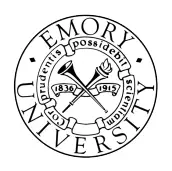

- Acceptance rate: 19%
- Average entry score: 1420-1540 SAT or 32-34 ACT
- Student-to-faculty ratio: 9 to 1
- Estimated cost of attendance (tuition and fees): $75,594
- Average earning potential for graduates: $100,400 (College Simply)
Emory University’s microbiology program is a top-notch program for anyone interested in the microscopic world. Faculty members with expertise in their fields and state-of-the-art laboratories give students the opportunity to learn by working with real scientists.
The program covers everything from studying the smallest organisms to exploring the vast implications of medical microbiology.
Located in Atlanta, students have access to a thriving research community and a wealth of internship opportunities. Emory’s microbiology program provides a solid foundation for those looking to pursue a career in molecular microbiology and become the next Louis Pasteur or Alexander Fleming.
#12. University of California San Francisco
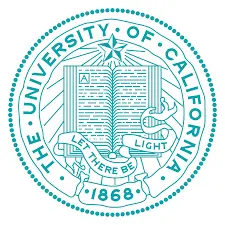

- Acceptance rate: 18%
- Average entry score: 1130 SAT
- Student-to-faculty ratio: 4 to 1
- Estimated cost of attendance (tuition and fees): $65,136-$77,854
- Average earning potential for graduates: $64,220 (Grad Reports)
The University of California, San Francisco’s (UCSF) microbiology program is known for its exceptional research facilities, renowned faculty, and comprehensive curriculum.
Students enrolled in this program will be able to work with the latest technology and facilities. This allows them to conduct ground-breaking research into microbiology.
The program’s faculty members are distinguished scholars and researchers, many of whom have received prestigious awards and recognition for their contributions to the field.
#11. Washington University St. Louis
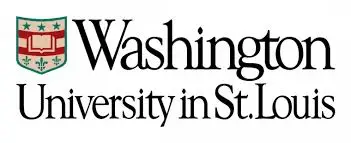
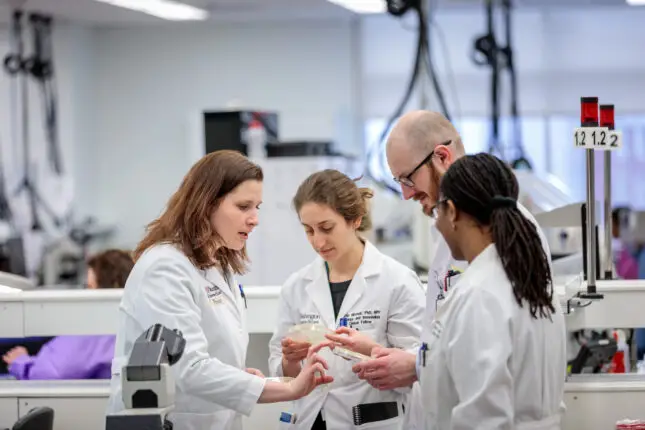
- Acceptance rate: 16%
- Average entry score: 1490-1570 SAT or 33-35 ACT
- Student-to-faculty ratio: 7 to 1
- Estimated cost of attendance (tuition and fees): $79,060
- Average earning potential for graduates: $67,660 (Grad Reports)
Washington University in St. Louis’ Microbiology program is designed to give you the competitive edge you need as a future microbiologist.
You’ll gain in-depth knowledge of the microscopic world through a comprehensive curriculum covering everything from immunology to bacteriology.
But it’s not all textbooks and lectures. You’ll get hands-on experience in the lab and even have the opportunity to work with faculty on research projects. This will give you the practical skills that employers crave.
And with St. Louis being a hub for research and healthcare, you’ll be perfectly positioned to launch your career after graduation.
#10. University of California Berkeley

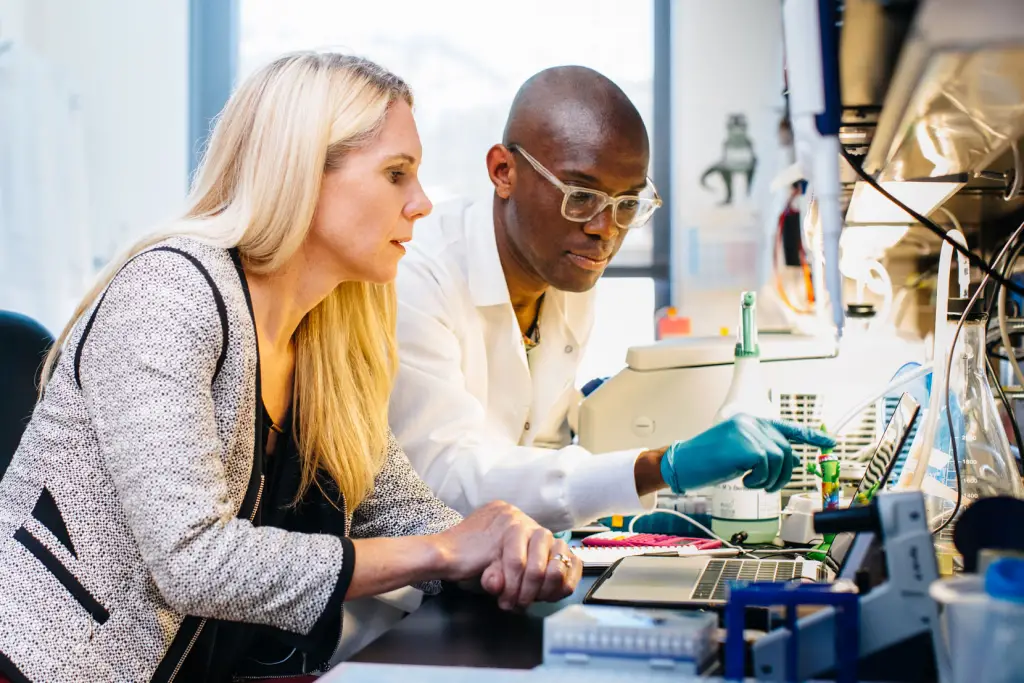
- Acceptance rate: 14%
- Average entry score: 1415 SAT
- Student-to-faculty ratio: 17 to 1
- Estimated cost of attendance (tuition and fees): $41,878-$71,632
- Average earning potential for graduates: $68,900 (College Simply)
The University of California at Berkeley’s microbiology program offers students a deep understanding of how microbes affect human health and well-being, biotechnology, and environmental sustainability.
Through a combination of rigorous coursework and hands-on laboratory experiences, students gain expertise in areas such as microbial genetics, physiology, ecology, and evolution.
Graduates of the program are well-prepared for careers in research, medicine, biotechnology, environmental science, and more.
They are also equipped with critical thinking and problem-solving skills that allow them to approach complex scientific problems with creativity and innovation.
Similar articles like this:
- 25 Best Physics Schools In The US
- 25 Best Psychology Schools In The US
- 25 Best Sociology Schools In The US
#9. University of California Los Angeles
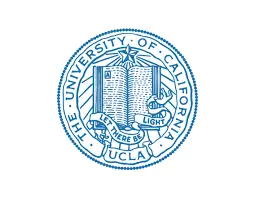
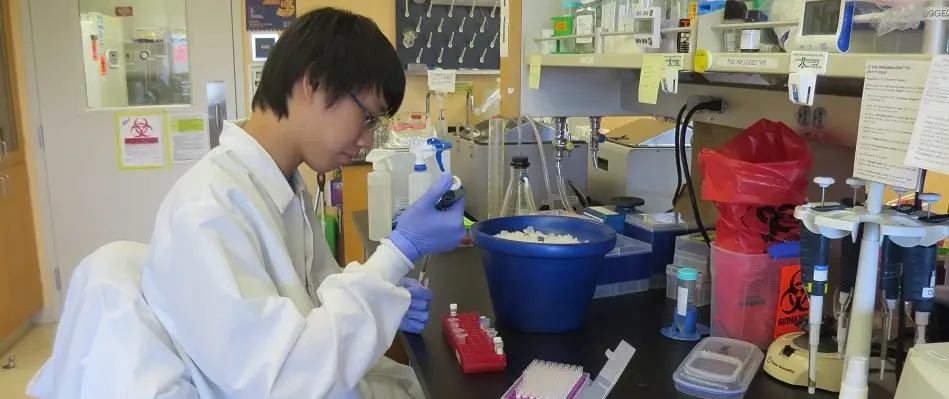
- Acceptance rate: 14%
- Average entry score: 1290-1520 SAT
- Student-to-faculty ratio: 18 to 1
- Estimated cost of attendance (tuition and fees): $16,847-$31,949
- Average earning potential for graduates: $82,300 (College Simply)
Well, it’s no secret that microbiology is the study of tiny organisms that can’t be seen with the naked eye, but what is a secret is how much UCLA’s microbiology program rocks the socks off its students.
Maybe it’s the cutting-edge research opportunities or the state-of-the-art facilities. Or maybe it’s the fact that the professors are actual rock stars in the field, with more publications than you can shake a petri dish at.
Whatever the reason may be, one thing’s for sure: UCLA’s microbiology program is the bee’s knees, the cat’s pajamas, and the bacteria’s flagella all rolled into one.
What’s it like to study at UCLA?
#8. Cornell University

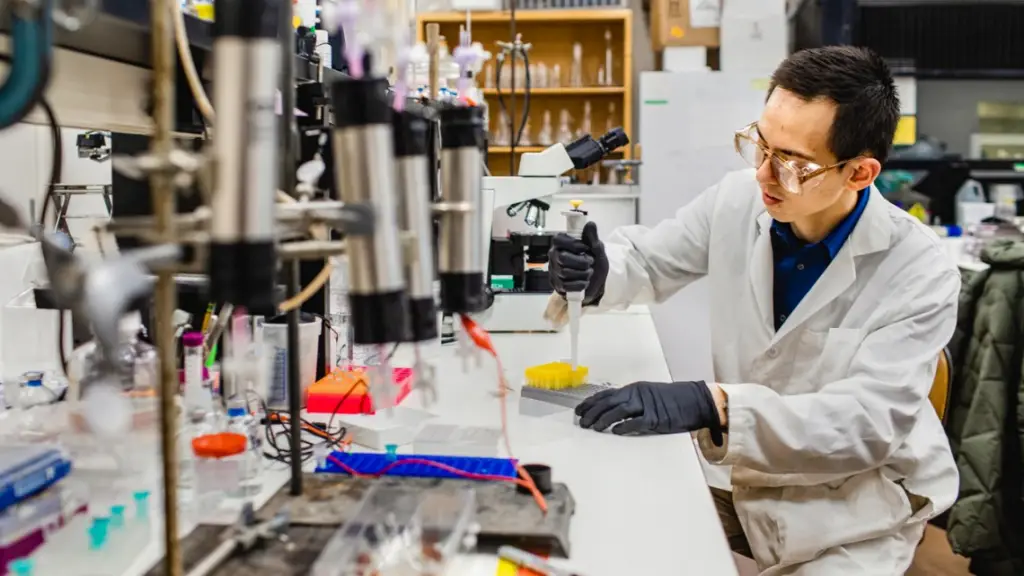
- Acceptance rate: 11%
- Average entry score: 1400-1560 SAT or 33-35 ACT
- Student-to-faculty ratio: 9 to 1
- Estimated cost of attendance (tuition and fees): $80,287
- Average earning potential for graduates: $110,430 (Grad Reports)
For aspiring microbiologists, Cornell University offers an ideal combination of academic rigor and research opportunity.
Additionally, the research opportunities at Cornell are unparalleled: cutting-edge facilities and resources make for a stimulating place to work. Moreover, Ithaca’s unique environment offers diverse ecosystems and a strong agricultural industry from which to draw inspiration—and specimens!
Cornell’s commitment to interdisciplinary collaboration allows students in the microbiology program to work with experts from other fields. This way, students can hone their knowledge of microbiology while learning how to apply it in real-world situations.
#7. Johns Hopkins University

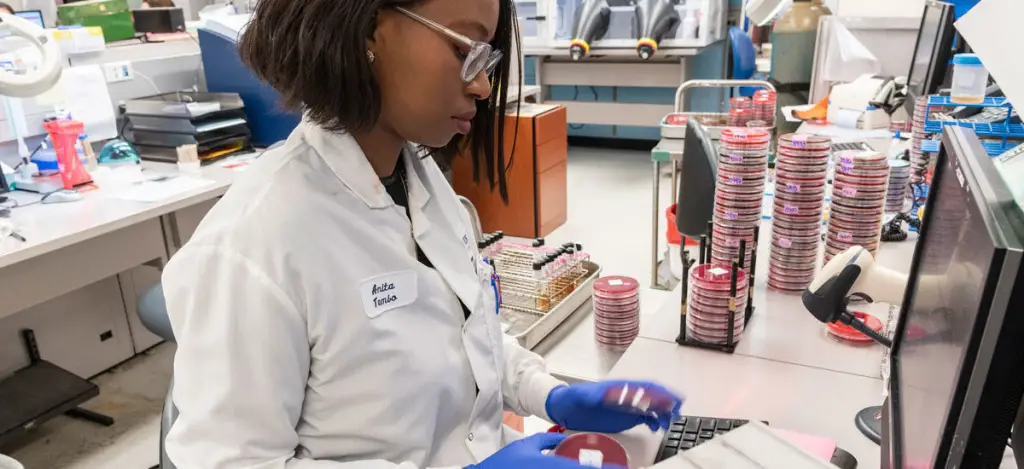
- Acceptance rate: 11%
- Average entry score: 1510-1570 SAT or 34-35 ACT
- Student-to-faculty ratio: 7 to 1
- Estimated cost of attendance (tuition and fees): $78,657
- Average earning potential for graduates: $71,100 (College Simply)
Johns Hopkins University’s microbiology program provides students with a strong foundation in the study of bacteria, viruses, and other microorganisms.
Through coursework and hands-on laboratory experience, students learn about the fundamentals of microbial genetics, physiology, and ecology.
They also gain a deep understanding of the role of microorganisms in human health and disease, as well as their impact on the environment.
Graduates of the program are well-equipped to pursue careers in research, healthcare, and biotechnology, making significant contributions to the fields of medicine, public health, and biomedical science.
What’s it like to study at Johns Hopkins University?
#6. Duke University


- Acceptance rate: 8%
- Average entry score: 1480-1570 SAT or 33-35 ACT
- Student-to-faculty ratio: 8 to 1
- Estimated cost of attendance (tuition and fees): $84,517
- Average earning potential for graduates: $56,800 (College Simply)
Duke University’s microbiology program is distinct in its interdisciplinary approach. It combines biology, chemistry, physics, and engineering to provide students with a thorough understanding of microbiology.
The program prioritizes research, providing students with opportunities to collaborate with distinguished faculty members in advanced laboratories.
Also, Duke’s strategic location in the Research Triangle Park expands students’ research prospects and collaborations with leading scientific institutions.
What’s it like to study at Duke University?
Similar articles like this:
- 25 Best Political Science In The US
- 25 Best Social Sciences Schools In The US
- 25 Best Veterinary Schools In The US
#5. Yale University
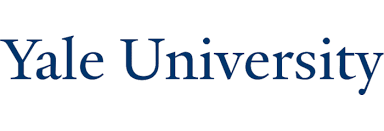
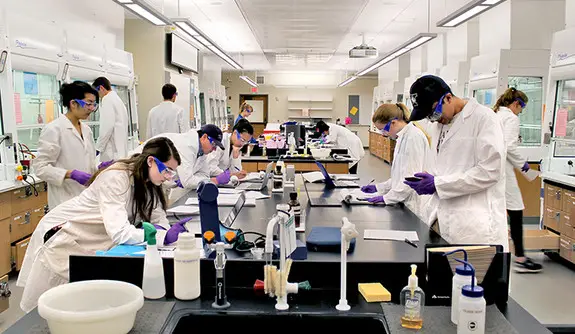
- Acceptance rate: 7%
- Average entry score: 33-35 ACT
- Student-to-faculty ratio: 6 to 1
- Estimated cost of attendance (tuition and fees): $84,525
- Average earning potential for graduates: $61,200 (College Simply)
Listen up, aspiring microbiologists! If you want to join the cool kids’ club, you gotta check out Yale University’s microbiology program.
With hands-on lab experience, access to cutting-edge research, and world-class faculty, this program will have you feeling like a microbial rockstar in no time.
Plus, with Yale’s prestigious reputation and alumni network, you’ll be the envy of all your biotech buddies. You surely don’t want to miss out on the chance to become a microbe mastermind at the one and only Yale University.
What’s it like to study at Yale University?
#4. Columbia University

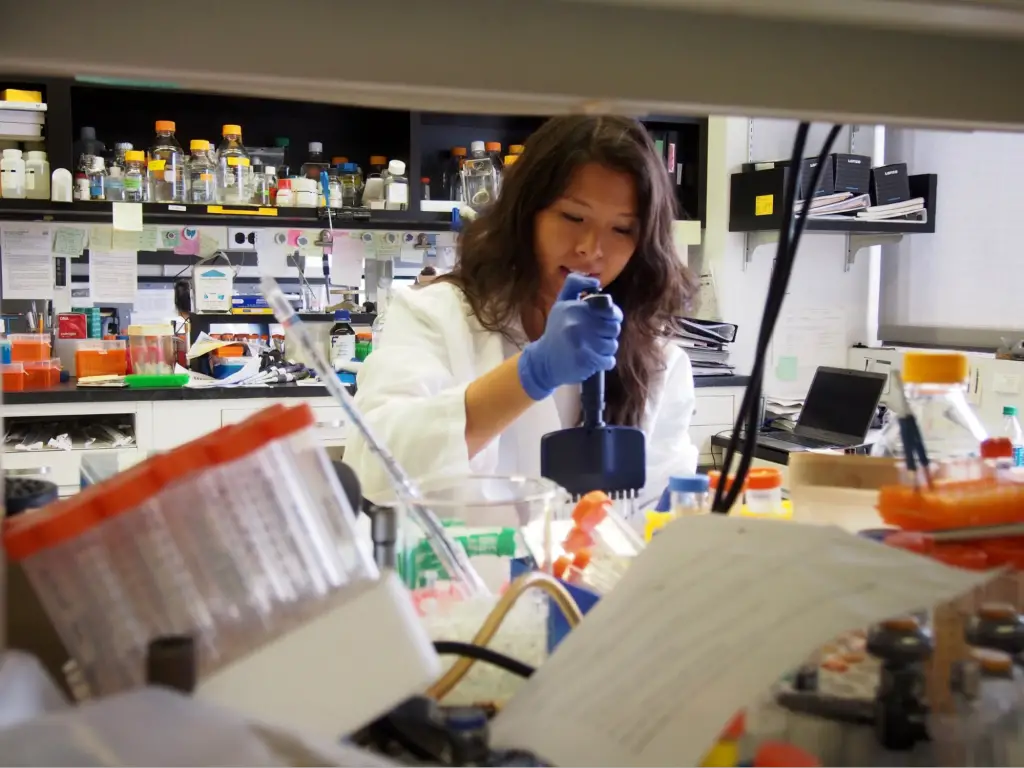
- Acceptance rate: 7%
- Average entry score: 1440-1570 SAT or 34-35 ACT
- Student-to-faculty ratio: 6 to 1
- Estimated cost of attendance (tuition and fees): $85,000
- Average earning potential for graduates: $81,900 (College Simply)
Columbia University’s microbiology program is a unique and exciting opportunity to explore the microscopic world of microbes and their impact on human health and the environment.
The program has top-notch faculty, a blend of coursework and hands-on research opportunities, state-of-the-art facilities, and cutting-edge technology.
Studying in the heart of New York City adds to the allure of this program. And this program is not your run-of-the-mill bacteria-on-a-petri-dish kind of deal.
It’s the perfect blend of science, technology, and city living that will allow you to dive deeper into the world of microbes and put your newfound knowledge to the test in the lab.
What’s it like to study at Columbia University?
#3. Massachusetts Institute of Technology

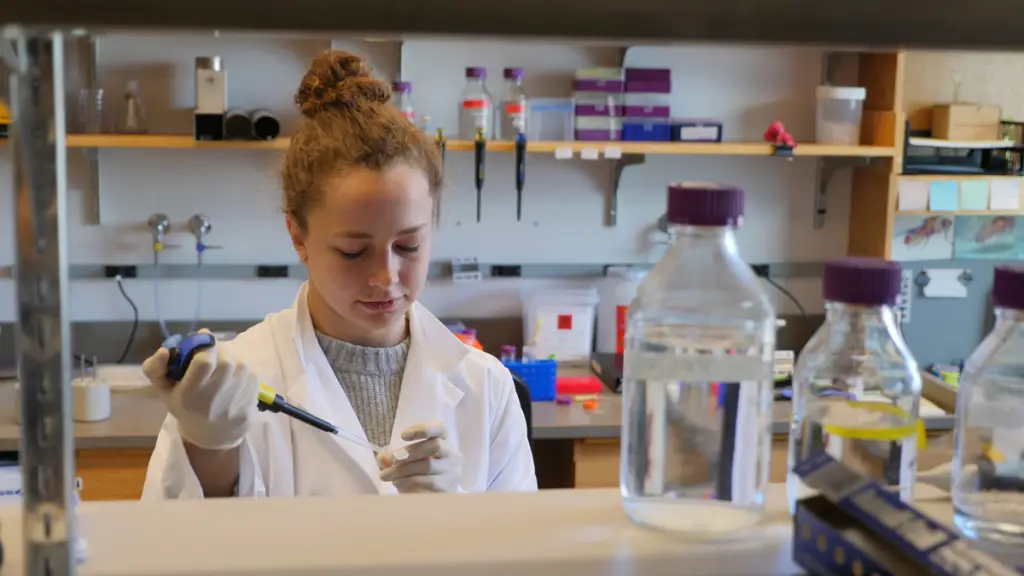
- Acceptance rate: 7%
- Average entry score: 1570 SAT or 36 ACT
- Student-to-faculty ratio: 3 to 1
- Estimated cost of attendance (tuition and fees): $77,570
- Average earning potential for graduates: $74,580 (Grad Reports)
MIT’s Microbiology Program provides students with broad exposure to modern areas of microbiology and depth in their chosen area of thesis work. Through the program, students are able to gain a better understanding of the underlying elements of modern microbiological research and engineering.
Besides the core coursework, all students have the opportunity to learn from a diverse network of faculty members and participate in research with them.
Also, students will have the opportunity to attend workshops and conferences hosted by the program and participate in community service projects.
This way, students will gain a better understanding of the field of microbiology, their chosen area of research, and how they can apply their knowledge to solve real-world problems.
The program culminates in the thesis project which allows students to develop an independent research project with guidance from faculty members.
#2. Stanford University

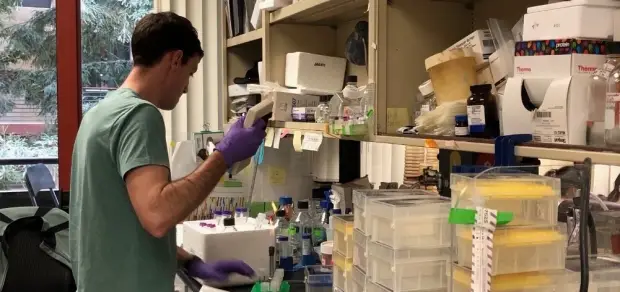
- Acceptance rate: 5%
- Average entry score: 1470-1570 SAT or 34-35 ACT
- Student-to-faculty ratio: 5 to 1
- Estimated cost of attendance (tuition and fees): $78,898
- Average earning potential for graduates: $75,900 (College Simply)
The microbiology program at Stanford University offers a range of benefits to students, including cutting-edge research opportunities, diverse coursework, real-world experience, collaboration and networking opportunities, and career opportunities.
Students have access to state-of-the-art research facilities, work alongside leading experts in the field, and gain practical skills and knowledge in microbiology.
The program encourages collaboration and networking among students and faculty members, fostering a sense of community and providing valuable networking opportunities.
Graduates of the program have gone on to work in academia, research institutes, government agencies, and the private sector.
#1. Harvard University

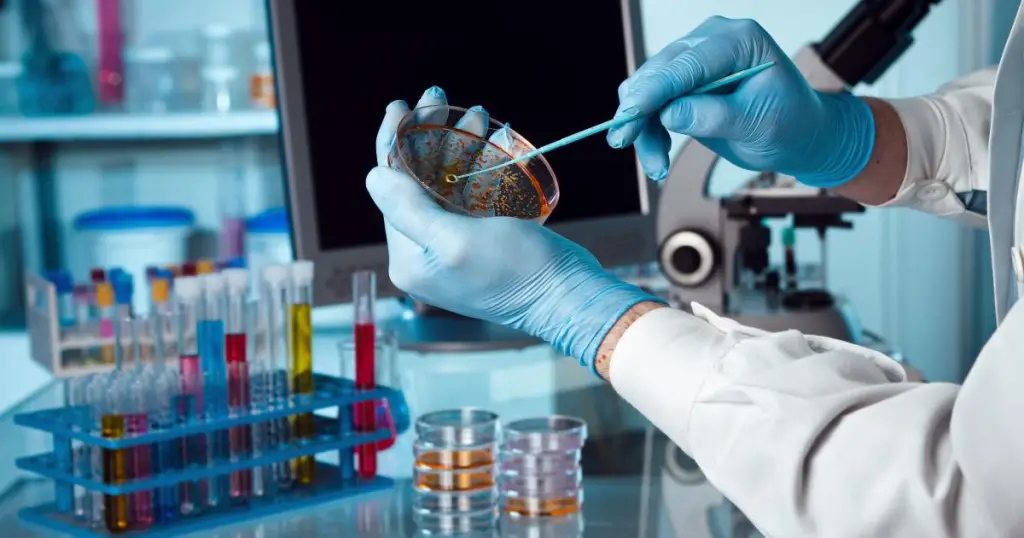
- Acceptance rate: 5%
- Average entry score: 1460-1580 SAT or 33-35 ACT
- Student-to-faculty ratio: 7 to 1
- Estimated cost of attendance (tuition and fees): $78,200
- Average earning potential for graduates: $65,040 (Grad Reports)
Harvard University’s microbiology undergraduate and graduate programs for students are highly regarded due to their interdisciplinary approach to studying microorganisms. The programs offer a combination of hands-on laboratory research, advanced coursework, and collaboration with leading researchers in the field.
Harvard’s microbiology faculty are renowned for their innovative research and teaching.
They provide students with a comprehensive understanding of microbiology, from molecular biology to ecology. Harvard also offers opportunities for students to participate in research internships, conferences, and other extracurricular activities.
These enhance their understanding of microbiology and prepare them for careers in academia, industry, and government.
Conclusion
These incredible institutions are like a microbiologist’s paradise, offering top-notch education, cutting-edge research facilities, and renowned faculty to support your scientific goals.
By joining one of these schools, you’ll be primed to unlock your potential and make a real difference in microbiology.
So what are you waiting for? Take the leap and apply to one of these amazing schools. Who knows what groundbreaking discovery you’ll make next?
Selection Criteria
Here is a list of the factors we considered when selecting the best microbiology schools:
Please note that the order in this list might vary by ranking criteria and sources.
- Reputation and ranking of the school: We looked for schools that have a strong reputation and high ranking in the field of microbiology.
- Faculty expertise, qualifications, and specialization: We researched the faculty members and their areas of expertise and qualifications to ensure that the school has professors with relevant expertise and specialization in the areas of microbiology that are of interest.
- Curriculum and resources: We evaluated the curriculum to ensure it aligns with students’ interests and career goals and considered the quality of the school’s facilities and resources, such as labs, equipment, and libraries.
- Opportunities for hands-on learning and research: We looked for schools that provide opportunities for hands-on experience through internships, co-op programs, or fieldwork.
- Student support services and alumni network: We considered the availability of support services and the strength of the alumni network in providing mentorship, internships, and job opportunities after graduation.
- Extracurricular activities and diversity: We evaluated the availability of extracurricular activities and clubs that align with students’ interests and considered the school’s diversity and inclusivity.
- Networking and post-graduation support: We researched the school’s network of alumni and their post-graduation support for microbiology students and also considered if the schools have a strong network of industry professionals and researchers in microbiology.
Frequently Asked Questions
Q1. How do I choose the best microbiology school for my career goals?
Choosing the best microbiology school for your career goals requires research on the schools that offer programs that align with your interests.
Consider factors such as curriculum, faculty, research opportunities, and career placement services.
Q2. Can you compare and contrast the teaching styles of the top microbiology schools?
The teaching styles of the top microbiology schools may vary, but most incorporate a combination of lectures, lab work, and research opportunities. Some schools may emphasize hands-on learning, while others prioritize theoretical concepts.
Q3. What are the research opportunities available for students at the best microbiology schools?
The best microbiology schools offer students a range of research opportunities, including collaborations with faculty members, internships with research institutions, and independent projects.
Q4. How do the top microbiology schools support their students in finding internships and job opportunities after graduation?
Many top microbiology schools offer career placement services, including job fairs, networking events, and resume-building workshops. They also have strong alumni networks that can provide mentorship and job leads.
Q5. What are the admission requirements for the best microbiology schools, and how competitive are they?
Admission requirements for the best microbiology schools vary, but most require strong academic transcripts, letters of recommendation, and standardized test scores. They are generally competitive, with acceptance rates ranging from 10% to 30%.
References
[1] Official Websites
[2] Salary Data from Glassdoor, Grad Reports, College Factual, College Simply, Zippia
[3] Ranking references, including news media such as Best Global Universities for Microbiology.

